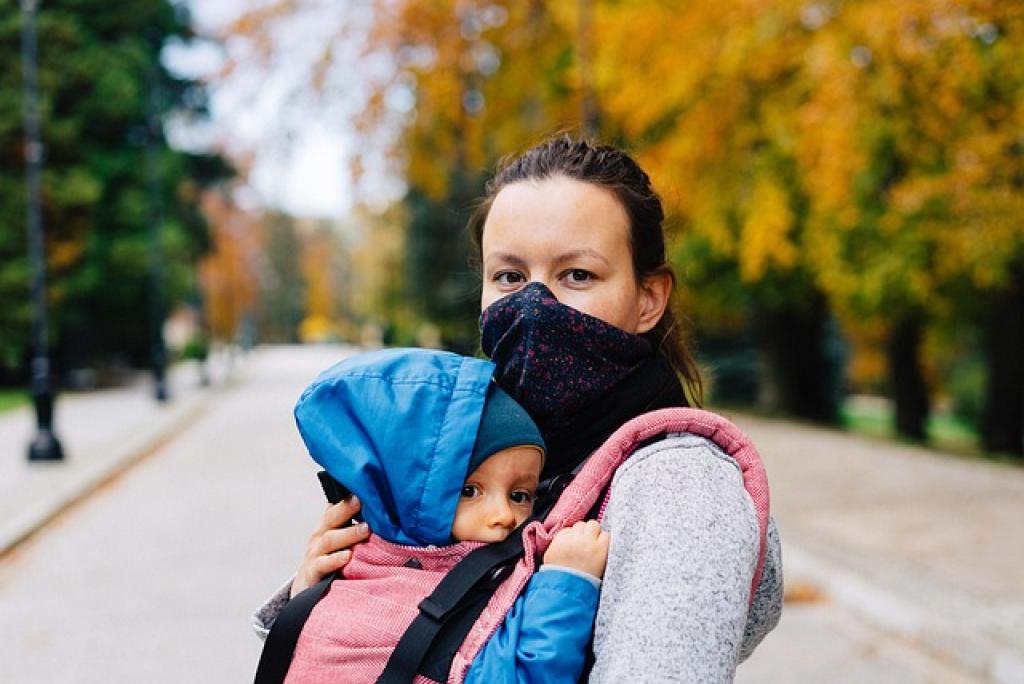Welcoming a newborn into the world is a joyous yet daunting experience. With a new bundle of joy also come worries—especially when it comes to health. Understanding common infant illnesses can empower parents, providing peace of mind amidst the challenges of early parenthood.
New parents often find themselves overwhelmed by countless questions about their baby’s well-being. Why won’t my baby stop crying? Is that rash normal? These queries are universal, and it’s perfectly natural to seek answers.
This guide explores the most frequent ailments infants face, from the sniffles to more unusual symptoms. With a focus on demystifying medical jargon, it aims to make you feel more confident and less anxious when addressing your infant’s health needs.
Navigating through the initial years with a baby needn’t be stressful. Armed with knowledge about common infant illnesses, parents can better manage their little one’s health and enjoy precious moments with fewer worries.
Common Infant Illnesses: An Overview
As parents, recognizing common illnesses your infant may encounter is crucial in managing them effectively. Babies can’t tell us what’s wrong, so understanding symptoms and knowing when to seek help can make all the difference.
Colds and Respiratory Infections
Infants are prone to colds due to their developing immune systems. Sneezing, coughing, and a runny nose are all signs to watch for. Keeping your baby hydrated and allowing plenty of rest can help them recover more quickly.
Digestive Distress
From gas to diarrhea, tummy troubles are common in infants. Monitoring your baby’s diet and adjusting feeding routines can alleviate some of these issues. However, persistent vomiting or bloody stools warrant a call to the pediatrician.
Ear infections are another frequent concern, often marked by irritability or tugging at the ears. Prompt treatment can prevent complications and provide relief.
While most common infant illnesses are manageable at home, it’s important to trust your instincts. If something doesn’t seem right or your baby has persistent symptoms, don’t hesitate to consult with a healthcare professional. Every sneeze, sniffle, or whimper is a part of the journey towards understanding your little one’s health needs.
Recognizing Signs of Illness in Babies
Recognizing the signs of illness in babies can be challenging, as they cannot express discomfort in words. Instead, they offer other cues that attentive parents can learn to interpret.
One of the first signs of illness is a change in behavior. If your usually cheery baby becomes unusually fussy or lethargic, it’s worth taking note. Similarly, a sudden change in feeding patterns, such as refusing to eat or drink, can be a red flag.
Physical Symptoms
Look for physical symptoms such as a fever, rash, or cough. A baby’s temperature that exceeds 100.4°F warrants attention. Rashes, especially those that spread quickly or are accompanied by a fever, should be evaluated by a healthcare professional.
Diarrhea and vomiting are also indicators that your infant may be unwell. While occasional spit-up is normal, projectile vomiting and diarrhea that persists can lead to dehydration and should be monitored closely.
Trust your parental instincts—if something feels off, it often is. Regular check-ups with your pediatrician can help in catching potential issues early on and ensuring your baby’s health is on track. Being proactive and informed paves the way for easier management of your infant’s wellness.

Fevers and When to Seek Medical Help
A fever in babies can be concerning, but it’s often a natural response to fighting infections. Understanding when it’s time to seek medical help can bring peace of mind to worried parents.
In infants, a fever is typically defined as a rectal temperature of 100.4°F or higher. While a slight fever can indicate your baby’s immune system is doing its job, a high or persistent fever requires attention.
Knowing When to Take Action
For infants under three months, any fever should prompt a call to your pediatrician. In older babies, observe their overall comfort and behavior. If they’re eating, sleeping normally, and playful, it’s likely manageable.
However, seek medical help if the fever is accompanied by symptoms like difficulty breathing, a rash, or persistent crying. Also, if a fever lasts more than 24 hours in babies under two, or three days in older infants, it’s time to consult a healthcare professional.
Trust your instincts—if your baby seems unusually irritable or if you’re feeling uneasy, it’s better to err on the side of caution. Early intervention can alleviate worries and ensure the best care for your little one.
Understanding Respiratory Infections
Respiratory infections are common in infants due to their developing immune systems. Recognizing the symptoms early can help in managing these illnesses effectively.
Common Culprits
Colds, bronchiolitis, and croup are frequent respiratory infections in babies. Colds may present with a runny nose, sneezing, and mild fever. Bronchiolitis, often caused by the respiratory syncytial virus (RSV), can lead to wheezing and difficulty breathing. Croup is known for its distinctive "barking" cough.
Despite their prevalence, most respiratory infections are self-limiting and improve with supportive care. Ensure your baby is well-hydrated and consider using a humidifier to ease breathing.
When to Seek Help
While most symptoms can be managed at home, certain signs require medical attention. Rapid breathing, significant retractions (when the chest appears to sink with each breath), or a bluish tint to the skin demand urgent evaluation.
Staying informed about vaccines and preventive measures can also play a crucial role in protecting your infant. Regular pediatric checkups and good hygiene practices help minimize the risk of infections, ensuring the best start for your baby’s health journey.
Dealing with Stomach Issues in Infants
Stomach issues in infants can be distressing for both babies and parents. Understanding the common gastrointestinal challenges can help in providing comfort and relief.
Gas, constipation, and reflux are typical tummy troubles. Gas often results from swallowing air during feeds or certain food sensitivities. Gentle belly massages and ensuring proper burping can alleviate discomfort.
Addressing Common Concerns
Constipation can occur when transitioning to solid foods. Ensure your baby is well-hydrated and consider offering small amounts of water or puréed prunes if age-appropriate. However, prolonged constipation or hard, pellet-like stools should be discussed with a healthcare provider.
Reflux, characterized by frequent spit-up, is usually more of a laundry issue than a health concern. Ensuring proper positioning during and after feeds can help reduce episodes.
Occasional vomiting is common, but if it’s severe or accompanied by symptoms like a swollen belly or blood in the vomit, seek medical advice. Observing dietary changes and maintaining a feeding routine can prevent many stomach issues.
Knowing how to soothe and manage these common issues empowers parents to offer immediate relief, ensuring happier, more comfortable days for both baby and parents.
Conclusion: Tips for Managing Your Baby’s Health
Navigating the early years of your infant’s life can be both rewarding and challenging. Understanding common illnesses and knowing how to manage them is paramount in ensuring your baby’s well-being.
First and foremost, maintaining regular pediatric visits is crucial. These checkups not only monitor your baby’s growth but also serve as an opportunity to catch potential health issues early. Staying up to date with vaccinations is equally important in safeguarding your infant against serious diseases.
It’s also essential to create a healthy environment at home. Practicing good hygiene, such as frequent handwashing and sanitizing common surfaces, can significantly reduce the risk of infections. Additionally, ensure your baby’s living space is smoke-free to promote optimal respiratory health.
In moments of uncertainty, trust your instincts. Parents know their babies best, and if something feels off, don’t hesitate to consult with your pediatrician. No concern is too small when it comes to your child’s health.
Also, fostering a relaxed and happy atmosphere can have a positive impact on your baby’s overall well-being. Babies often pick up on parental stress, so finding ways to take care of your own mental health can, in turn, support theirs.
Finally, relish the journey of parenthood. Despite the hurdles, watching your baby grow and thrive offers unparalleled joy and fulfillment. By staying informed and proactive about their health needs, you are setting the foundation for a healthy start and many cherished memories ahead.










